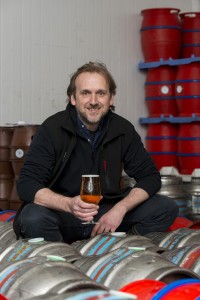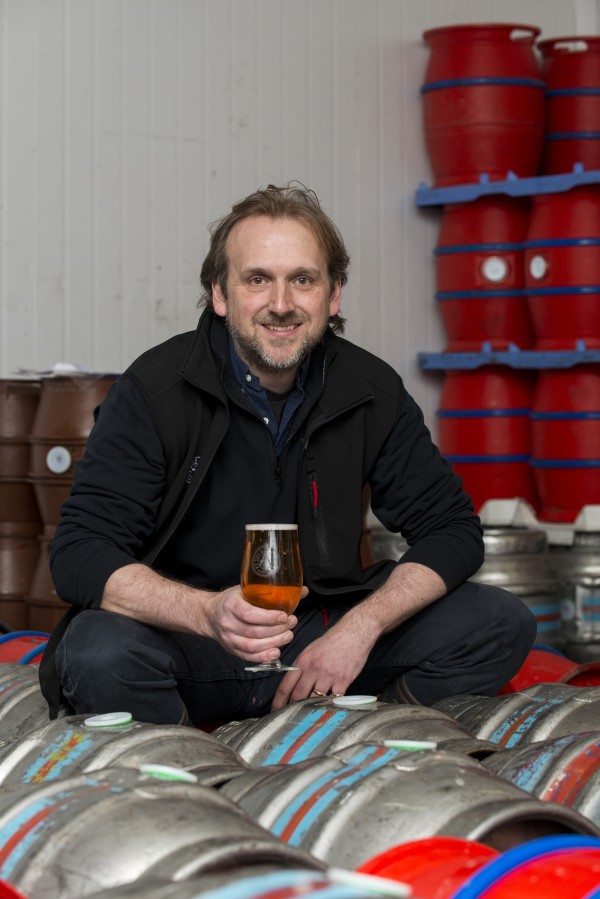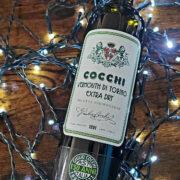We received a copy of this release from Fyne.
£2MILLION EXPANSION PLAN IS NEXT STEP FOR LOCH FYNE CRAFT BREWERY FYNE ALES.
Argyllshire family-run craft brewery – Fyne Ales – has turned the first soil on a £2million expansion plan on their farm, which will tripleturnover and meet growing demand for the company’s range of award-winning craft beers.
The development is co-funded with grant support from the Highlands and Island Enterprise scheme, a Food processing, Marketing & Co-operation Scheme (FPMC) grant from the Scottish Government and a £1million loan from Bank of Scotland supported by the Enterprise Finance Guarantee Scheme as well as Asset Finance.
Fyne Ales’ current turnover is £1.6m. The expansion is expected to see this figure double by 2015 and then increase to over £5m in the following two years. The development is expected to create 10 construction jobs and 12 new permanent jobs at the brewery itself.
Fyne Ales currently produce 90 barrels of beer per week – the equivalent of 27,000 pints. The first expansion phase will see production increase to 180 barrels a week with space available to boost production to 120 barrels per day – the equivalent of 36,000 pints – in 5 years’ time.
Considered one of country’s leading craft breweries, Fyne currently hold a number of national and international industry accolades such as ‘Champion Beer of Scotland’, which was awarded to Jarl – ‘a hoppy blond session ale’ – at the 2013 Campaign for Real Ale’s annual Scottish Real Ale Festival in Edinburgh.
Alongside Jarl, the company produces up to 30 beers each year that are available in a wide range of independent off-licences and independent pubs, bars and restaurants as well as across Scotland in Waitrose and Morrisons.
Leading the expansion will be Managing Director Jamie Delap whose parents – Tuggy and Jonny – added a brewery to their 4th generation family farm in 2000 in response to the lack of quality beer available locally.
The farm’s sheep shed – built by Jamie’s grandfather in the early 70s and originally used as sheep market – will host the £2million brewery.

Unlike some other Scottish craft brewers who favour continental brewhouses manufactured and shipped from mainland Europe, Fyne Ales have opted to stay true to their heritage with a British-made brewkit that Jamie believes offers the best craft ale technology, commenting:
“Producing top quality Scottish beer is the real focus for us. When a brewery announces it’s going to be expanding and introducing new techniques, there’s often concern from drinkers that it will change the taste of the finished product.
“In our case, the expansion is about meeting growing demand but first and foremost is an opportunity for us to get even more flavour and consistency into our beers using kit like a hopback which will extract brighter and fresher aromas from the hops.
“The new brewery will also allow us to mill malt on demand which will add a new level of freshness to our beers.
“Ultimately what we’re offering beer drinkers in Scotland and beyond is progressive thinking that also manages to stay true to traditional British brewing values and techniques.”
Despite how the £2million expansion will significantly increase the volume of product produced and help the brewery achieve international targets, Jamie Delap is still committed to operating in symbiosis with the surrounding countryside:
“Our family have worked the farmland here at Loch Fyne for over 100 years.
“All our beers draw inspiration from the environment around us. This includes the infamous Argyll rain, which – within 24 hours of falling onto the hills around Loch Fyne – is the basis of our brews.
“Our livestock also get the enjoy the fruits of our labour with our sheep and Highland cattle fed on the spent malt which forms a nutritious addition to their diet, and the spent hops go to a local market gardener to improve the quality of what they grow.”
Other 2014 milestones for Fyne Ales include a move into kegged beers, shipping beer to more markets overseas and the return of FyneFest – the food, drink and music festival which has seen attendance increase substantially each year since it began in 2010.




